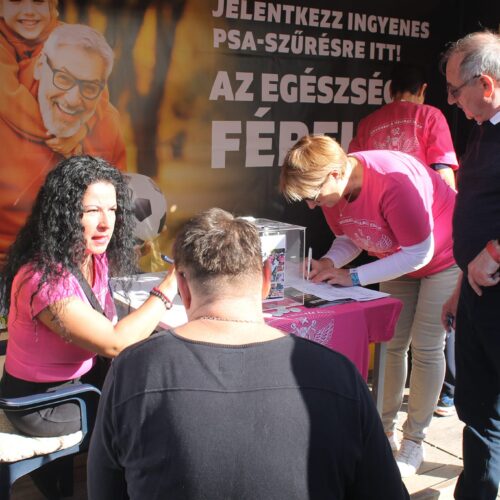Piloting screening programmes in different countries
2024 saw the beginning of several pilot screening projects across Europe, which will test the model for screening developed by PRAISE-U. All of the pilots are expected to complete screening of the target population within one year. The data from these pilots will be independently reviewed by a data monitoring committee, with MRI and biopsy slides undergoing quality control through independent advisors.
Each of the pilot sites has adapted the PRAISE-U screening protocol to their local healthcare system.
Poland
The pilot is being run by the Lower Silesian Oncology, Pulmonology and Haematology Centre’s Subdivision of Urology with support from the National Institute of Public Health.
There is currently no organised screening programme in Poland so much of the work to develop a cohesive screening centre will start from scratch. Participation in the national breast screening programme has been low (34% in 2020) so compliance for prostate cancer is also anticipated to be low (10% or lower). The pilot will explore the barriers to participation and try out potential solutions.
Ireland
The pilot is being run by University College Dublin with the Health Service Executive, the National Cancer Control programme and the National Screening Service. It will study
both urban and rural populations, high and low socio-economic groups and different populations such as migrants.
This programme is using home-based PSA tests using a finger-prick blood sample. The global charity Movember is publicising on digital and social media platforms to maximise response rates, targeting populations who traditionally respond poorly to screening calls. The impact of these communication activities will be measured.
Spain: Galicia
The pilot is run by the publicly funded Galician Healthcare Service. Galicia is a largely rural population, with 33% of its population over 65 years old reflecting the generally ageing population within the EU. There is currently no organised prostate screening in Spain.
The pilot project builds on the experiences of the breast, colon and cervix cancer screening programmes already implemented in Galicia and is centred on the health district of Ferrol where there is a strong level of trust in the healthcare system. The focus is on testing the feasibility of the risk-based approach, and monitoring the strong electronic health data systems in place for contacting and tracking the target population.
Spain: Manresa
This pilot is run by the Althaia Foundation in Manresa, Spain, and is the only pilot led and driven by the director of primary care within an integrated publicly-funded health organisation.
The pilot study aims to explore the effects of implementing a risk-based screening programme, focusing on how well men and healthcare professionals comply with the screening when it is managed by family doctors within primary care. It will assess barriers and facilitators and compare the resources required with pilots not based in primary care. It will also assess buy-in of primary care physicians and compliance with the algorithm.
Lithuania
This pilot is being run by the National Cancer Institute in Vilnius region. Lithuania has been running a PSA-based population screening programme since 2006. The programme already applies risk-stratification, but the model is being more closely aligned with the PRAISE-U clinical algorithm, with the addition of formal screening invitations to the target population to reduce opportunistic screening and encourage uptake (currently at 40%). The pilot is also exploring how the model is received by men in the target group and healthcare providers in the target area, and how men can be tracked to make sure that they remain in the protocol or guidelines developed.
The PRAISE-U consortium will also be gathering knowledge and information about lessons learned from:
- Swedish regions operating their Organised Prostate Cancer Test (OPT) scheme.
- The Estonian pilot study of early detection of prostate cancer (SYNLAB)
- The government-backed prostate cancer screening pilot being run in the Czech Republic by UZIS
- Other pilots run in countries on their own initiative but inspired by PRAISE-U.
